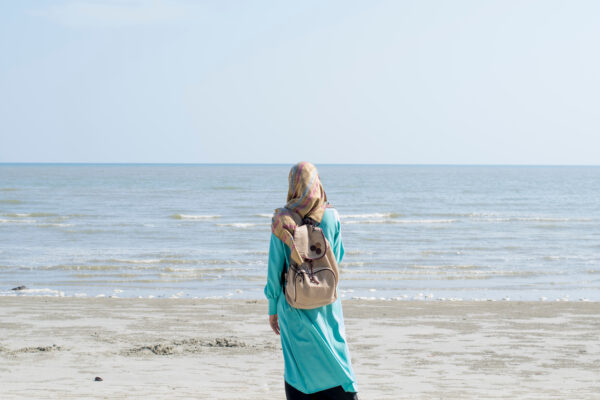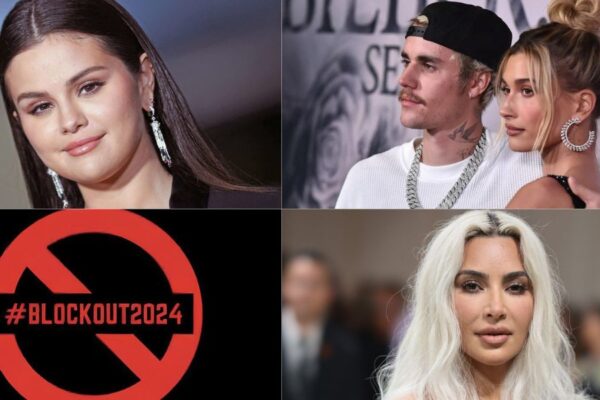Here’s an in-depth look at the risks, benefits, and future of family vlogging on social media and what we need to think about as both creators and consumers.
Here’s an in-depth look at the risks, benefits, and future of family vlogging on social media and what we need to think about as both creators and consumers.
When the pandemic struck and the whole world came to a standstill and the only option left was to stay cooped up at home, I felt like the only human being on the planet who didn’t have a YouTube channel.
With the mandatory stay-at-home orders which was also the safest option available to protect oneself from the virus, anyone and everyone seemed to have started their own online space where they cooked, baked, gardened, and gave tips on health, fitness, makeup and glamour, parenting and what not.
Social media platforms were crammed with health and hygiene guidelines, mental health awareness videos by experts, suggestions, and tricks to ward off boredom and anxiety alongside two and three-ingredient recipes to bake and family vlogs showcasing families and their daily lives.
Family Vlogging – A Window Into One’s Private Life
Vlogging, or video blogging, with family or family vlogging has continued to be a trend on online platforms for quite some time now. Family vlogging content dominates YouTube today.
Vloggers plan and record their day-to-day life, how they spent their day, what they eat on a daily basis and how they run their errands, what they pack in lunch boxes for kids, morning, evening, and bedtime routines, everyday cleaning routines, skincare routines, home tour videos as well as fun activities they perform and much more. Planning and recording stuff lends the vlogs a kind of authenticity believable to the viewers especially the family audience, taking them along an apparently honest journey into their private lives.
It is difficult to record spontaneous and natural reactions which is why ‘planning’ is necessary. Most family vlogs are loaded with beautiful frames aesthetically edited and accompanied by soothing background music. There are tips and tricks on the internet on how to create brilliant family vlogs, some of the advice being eating together, shopping or travelling together, engaging in fun activities, movie watching, nature walks, gardening, and home organising. Pranking the family members, planning surprises for them and even shopping hauls seem to work nowadays.
Vloggers showcase their daily lives to their viewers in order to feel connected with them and are also usually meant to be aspirational. They show off only their positive aspects and seemingly perfect everyday lives. The rest of the imperfect aspects of their lives are chopped off from the final video. While the vlogger constructs his life around making content for his channel subscribers, the viewers, unaware of the edited footage, feel pressure to have the same perfect lifestyle.
Uploading Content At The Cost Of Privacy
Unlike the older generation, the millennials and Gen Z feel they need more freedom, financial independence, and privacy. However, the latter seems to be fine with uploading personal stuff online at the cost of privacy.
Vloggers do admit to enjoying the popularity of their videos and the fame akin to a celebrity status they receive when they get recognised in public. Every aspect of a person’s private life including their private space, their private moments, their relationships, children, wealth, and even their grocery list are showcased before the world – the more subscribers, the more reach the data has, and consequently, the more loss of privacy.
Breeds ‘Influencer Culture’
This family-friendly form of digital entertainment leads to a toxic ‘influencer’ culture where the vloggers including young children are forced to generate content that is in line with the pop culture. This can be daunting and taxing giving rise to unnecessary pressure that has the potential to emotionally affect vloggers, children in particular.
When the vloggers feel that the content, they showcased wasn’t enough, they come up with new material. According to a study, vlogs that rake in good revenue, modify their content to show off more extravagant lifestyles, their mansions, luxury cars, and shopping sprees. The content is then expanded to show off their families, especially children, who are central to family vlogging. Another significant fact is that families wanting to achieve fame or looking for wealth, also begin exhibiting their seemingly ‘perfect lives’.
There are couples who record their lives, proposals, marriage, travel, and even breakups, online. Pregnancy routines and post-delivery diet by new mothers that also show immediate relatives, well-being, and fitness vlogs by couples are also in vogue. Office goers, small-time business owners, and part-time workers are also seen sharing content online about themselves, their families, and their home organisation.
The Fine Line Between Family Vlogging And Abusive Vlogging Often Gets Blurred
There are parents who share content involving their children and their lives online using their real names. Children as young as newborns and toddlers are used as props to get the vlog going, with their daily routine, their potty training, shopping, and dietary routines forming the core of the content. In the case of older children, again, filming such videos risk their privacy and freedom.
I recently came across a news report from 2018 about a family vlogger who pranked his kids by putting laxatives in their ice-creams. Even as the kids cried out in pain saying their stomachs hurt, the vlogger continued to record his children in the bathroom even as they tried to close the door. In another incident that occurred in 2017, a vlogging family pranked their kids with disappearing ink. The parents sprayed the ink on the bedroom carpet of their two sons blaming the children for the mess while the kids kept saying that they didn’t do it.
Can all this be called pranking? Or family vlogging? I would rather say it is abusive vlogging.
Importance Of Consensual Sharing Of Personal Data
Such videos are planned well in advance and then recorded with the sole focus on creating and delivering quality content that attracts more viewers. In such cases, the well-being of the children and their mental health, is what is being compromised. It becomes secondary whereas the primary focus is on the views and reach the videos would garner and the money that comes in.
Such things do harm the children because it is emotionally abusive. Most important and alarming of all, is the fact that the consent of children is of little importance as parents record and post such vlogs. Children tend to believe that this non-consensual sharing of their footage is normal, that this behaviour is okay, and that this is what is desirable to the audience. The likes and positive comments and suggestions that the videos receive reinforce this notion.
The Risks Involved
All information regarding the children is available online including their names, easily accessible to all which leaves the children vulnerable. There is always the risk of the wrong audience watching the family vlogging channels. Since the videos once out are easily accessible to anyone with internet access, those with wrongful and predatory intentions can also view them.
There were reports of family vlogs being embedded on the websites of paedophiles. This puts children at risk of being further tracked down by such persons. This undeniably can be detrimental to their mental health. Social media platforms such as YouTube et al haven’t so far taken any appropriate measures to curb predatory behaviour targeting children and hence, such incidents continue to happen.
Being Mindful Of The Pitfalls
Having said that, the purpose of the article is not to outrightly condemn family vlogging channels. It also serves some good. Some channels genuinely provide great sources of knowledge and guidance on matters such as parenting, health, and travel. Some are relatable, others are inspirational and entertaining.
There are yet other channels watching which alone serve as eyeopeners in helping the viewers identify the flawed and dangerous practices of family vlogging. We, as an audience and as parents, must be mindful of the influence the family vloggers have on us. Non-consensual sharing of photos and videos of kids on social media platforms is undoubtedly an invasion of their privacy.
We have a responsibility towards our children to seek consent, to talk about sharing their personal stuff online, if at all we intend to and how it might affect their image, both online and offline. In doing so, we are prioritising the wellbeing and safety of our children and dear ones over viewer reach and monetary gains.





